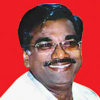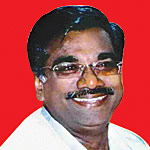Books, like their authors, are living beings. In spite of book burnings round the globe down the history of time, we know for certain that books cannot be killed by fire. They are, true to the words of Plato, immortal sons deifying their sires.
It is a misnomer that readers choose their books. But in fact, it is the books that choose their readers. Sitting in my snug study walled with books I could see several books, most of them classics of the world, either in the original English or in English translation, that once belonged to different people who lived in different parts of the Earth.
To give you an example, ‘The Love Letters of Victor Hugo’, one among my treasured books, was purchased by one Mrs. Katherine Plowman of Ontario, Canada in the year of its publication, 1901. Since several of its sheets remained uncut, I was sure it was unread either by its owner, or by her family members. And the book has to wait for a century to be read. I can’t say how the book found its way to Pondicherry Sunday Market where I purchased it for a song. The most remarkable creation of Victor Hugo, the book delighted me very much. Like birds that migrate, books fly over all obstacles to reach the place and the reader of their choice.
Books choose their destination. True. But it doesn’t mean that they’ll be read there. They have to choose their reader. In my library I still see several books that remain unread. That is to say they have not chosen me. Perhaps the time is not yet ripe. Contrary to this, the works of an Austrian writer named Stefan Zweig sitting in the cosy study of a writer friend chose me for their audience. I have travelled much in the realms of gold. Thanks to the English language translators, without whose endeavour readers like me would have missed the best in world Literature. And I am yet to come across a genius like Stefan Zweig.
All writers receive fan mail. Some respond and some don’t. As a writer, I belong to the first category. A lady lecturer from Andhra Pradesh fell in love with my works. She began to post letters to me. It is not that all her letters carried bouquets. But since I found her brickbats too very useful, I began to write back, without knowing in the least that the literary friendship would have a turning point. When I found that her admiration for my writing was turning into a sort of physical love for me, I began to soft-pedal. In spite of my yogic silence, a spate of letters from her pen began to torment me. Poor me! I was married with two kids.
My wife who happened to read one of those love letters became cross with me, packed herself off to her parental home. And I had a real tough time in bringing her back to her conjugal home. Since everything is grist to a writer’s mill, I wove a short story based on the incident that almost wrecked my life and published it in a famous daily. Enamoured of my story, a local woman writer gave me a tinkle and invited me to have high tea with her. While sipping tea, she casually remarked: “Your short story immediately brought to mind a novelette by Stefan Zweig.”
I looked at her. My looks perhaps suggested that I needed more information. “Stefan Zweig,” she began, “is an Austrian writer, born in Vienna and educated at the University there. He wrote psychoanalytical biographies upon which his reputation principally rests.” She pulled out a book from one of her bookcases and gave it to me. It was ‘Letter From an Unknown Woman’.
I took the book home. To my great surprise, I read it in a single sitting. I was so impressed by that book that after a couple of days I read it again. I was unable to sleep. What my writer friend told me was true to the core. Stefan Zweig was really great.
Letter from An Unknown Woman tells the story of a girl who falls in love with the writings of an eminent author and at a later date loses herself to him. A writer, though he creates, is no god. He is no superman. He is not indifferent to the vagaries of flesh. He is one who believes in the adage: “Should a man keep a cow at home because he needs a litre of milk every day?”
The sufferings the fan undergoes in bringing up the writer’s child whom she had mothered form the crux of the story. The unknown woman suffers and suffers, but so exquisitely in this romantic evocation of late-19th century Vienna that one doesn’t know whether to clobber the poor, wronged creature or to give in and weep. In short, it is the toniest ‘woman’s portrait’ even produced in words.
Really an unputdownable book that inspired me to read more by Stefan Zweig.























